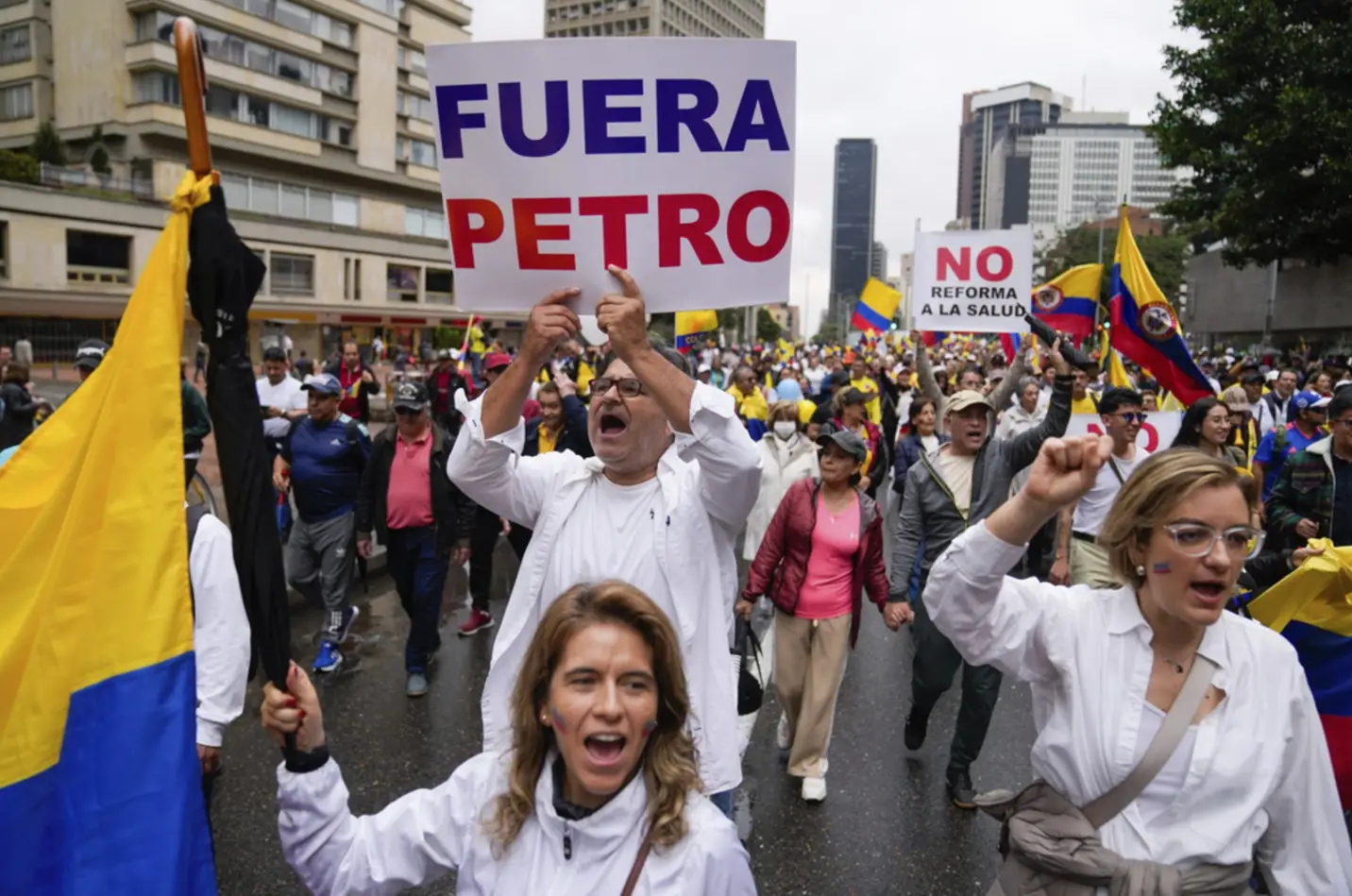The government of Gustavo Petro is not going through its best moment. On October 8, the National Electoral Council (CNE) decided to initiate an investigation and file charges against the president for alleged irregularities during his 2022 campaign. The oversight body accuses his campaign of exceeding legal spending limits and using unauthorized funding sources. Petro responded to the announcement by warning of the beginning of a coup d’état against his government and called on his supporters to protest on October 23 to defend him. The executive claims that the CNE cannot investigate the president and that this is a political maneuver orchestrated by certain “nefarious characters” who currently make up this body.
The process initiated by the CNE is administrative in nature, and if irregularities are proven, the sanction would be a fine. This body does not have the authority to remove the president, and for now, no criminal investigation has been opened in the Supreme Court, which would require prior authorization from Congress. So, why does Petro denounce a potential coup?
According to the opposition, his reaction is a “smokescreen” meant to divert attention from his campaign financing and the government’s poor performance over the past two years. However, the Colombian president does have sufficient reasons to fear, not so much a traditional military coup, but rather a presidential interruption or a soft coup that would remove him from office. When I say soft coup, I mean the overthrow of a sitting government by elements of the state itself, without resorting to military coercion or violence, but rather by interpreting constitutional norms in a forced manner and applying a strategy of attrition and delegitimization against the government, supported by non-democratic powers such as the judiciary, the economic sector, and the media.
The 1991 Constitution establishes that the president can only be removed or suspended through a political trial before Congress. In this procedure, the House of Representatives prosecutes, and the Senate is responsible for admitting or rejecting the charge and deciding on the continuation or removal of the elected official. As in other Latin American countries, in Colombia, the accusation is not limited to crimes committed while in office; it also includes “unworthiness for misconduct,” a cause vague enough to serve as a basis for an eventual political trial over irregular campaign financing against the president. Although Petro initially had the support of a majority of legislators in both chambers during the first months of his term, he lost much of this backing throughout 2023. Hence, the difficulties he is facing in advancing his agenda.
In addition to having a hostile Congress, there are other reasons to believe that the possibility of a presidential interruption or even a soft coup is not merely a “smokescreen” but rather a plausible risk. On the one hand, the investigation opened against Petro, regardless of the veracity of the accusations, is far from impartial due to the composition of the electoral body.
The politicization of the CNE and other oversight bodies is a long-standing problem in the country, but that does not diminish the gravity of the situation. Currently, the body is presided over by César Lorduy, a former opposition congressman accused of femicide in 1979, whose case did not end in a conviction but instead expired. Furthermore, the investigation against Petro was initiated by magistrate Álvaro Prada, a former representative for the Democratic Center (the party of former president Uribe), who is under investigation by the Supreme Court for witness tampering.
The impartiality of the electoral body is also called into question by the fact that this is the first time since its creation in 1991 that it has launched an investigation against a sitting president, despite some of his predecessors, such as Ernesto Samper or Iván Duque, also being investigated for irregular campaign financing.
Another reason to suspect a possible mandate interruption or soft coup against the president is the precedents both in Colombia and the region. During his tenure as mayor of Bogotá in 2013, Petro was removed from office and disqualified from running for public office for 15 years by the Attorney General’s Office, an administrative oversight body then led by Alejandro Ordóñez, a far-right politician opposed to the then-mayor.
A situation, therefore, somewhat similar to the current one, but with two key differences: the Attorney General’s Office, unlike the CNE, does have the legal authority to remove the mayor from office and had previously removed elected mayors. On that occasion, the Bogotá Superior Court ordered President Juan Manuel Santos to reinstate Petro after a citizen filed a protective action against the Attorney General’s decision.
In July 2020, the Inter-American Court of Human Rights condemned the Colombian state for violating Petro’s political rights, arguing that Colombian laws empowering administrative entities to impose such sanctions on democratically elected officials violate the American Convention on Human Rights. After this year’s renewal of all oversight bodies with the support of a cross-party majority in Congress, the CNE is the only one that can play a similar role to the Attorney General’s Office in 2013.
In Latin America, there have also been several instances of non-violent mandate interruptions and soft coups against presidents, prompting some left-wing governments and political forces to speak of lawfare. However, the Colombian case does not fit well with this term, as the opposition to Petro has not made instrumental use of the judiciary to attack him, but rather of oversight bodies.
For this reason, despite the high courts having blocked some legislative provisions initiated by the government, Petro was wrong last week to describe the relationship between the judiciary and the executive as traumatic. The judiciary could be an ally, as it has been in the past, in the face of hostility from Congress and the CNE.
In short, it is reasonable to think, as Petro does, that the investigation into irregular campaign financing could be the start of an opposition maneuver to remove him: he has lost congressional support, he is under investigation by a highly biased body that has never targeted a sitting president, and there are precedents of mandate interruptions and soft coups both in Colombia, against Petro himself, and in the region.
However, the strategy of portraying himself as a victim and mobilizing his supporters in the streets is not the most suitable way to respond as president. This defensive response made sense in 2013 when he was removed from the mayor’s office, but now, with an administrative investigation that does not formally threaten his continuity in office, he should focus on legally challenging the CNE’s decision and rebuilding bridges with his former congressional allies (now in the opposition) to advance his reformist agenda.
Fortunately for Petro, his potential removal has a strong barrier: vice president Francia Márquez, who would succeed him and whom his opponents perceive as an even worse alternative than the president.













